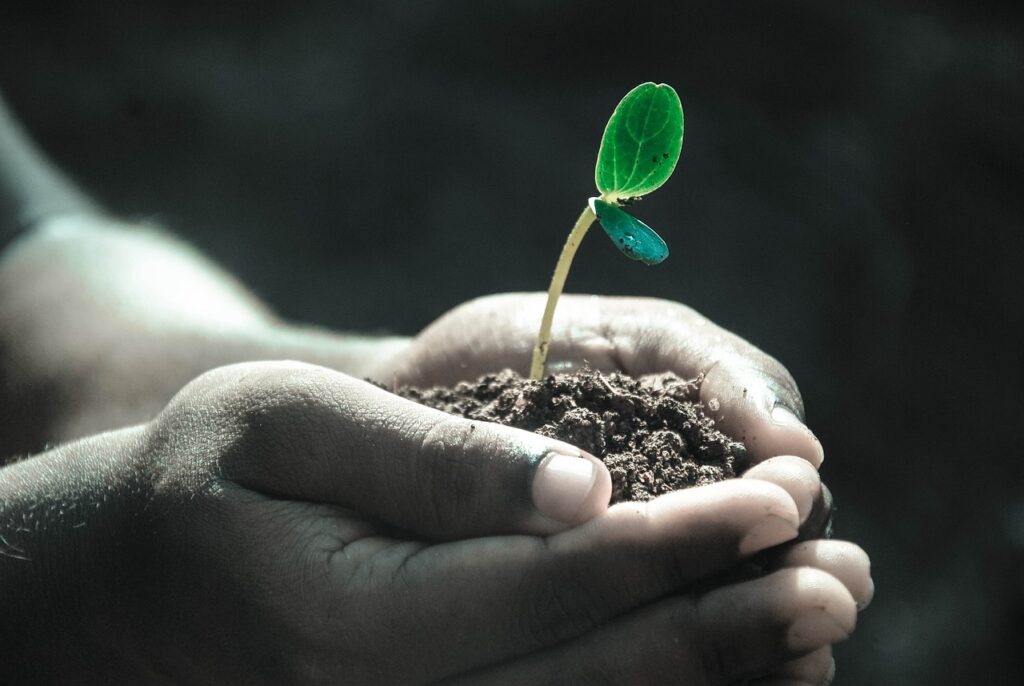Russia and Ukraine are vital players in the global fertilizer market, recognized for their significant production of essential agricultural inputs, such as potash. This importance is underscored by the escalating armed conflict between the two nations, which led Russia to take the drastic step of advising its producers to halt exports of fertilizers and their necessary raw materials to the global market. This decision has sparked a wave of international tensions that threaten not only the fertilizer industry but also the food security of numerous countries worldwide.
In a report by the BBC, Svein Tore Holsether, CEO of Yara International—one of the world’s largest and most influential fertilizer companies—issued a stark warning regarding the global reliance on fertilizers for food production. He noted that “half of the world’s population relies on fertilizers for their food, and removing them from certain crops could lead to a 50% reduction in production.” This assertion emphasizes the scale of the impending crisis if fertilizer exports are not resumed and agricultural output sustained.
Plants, much like humans, are living organisms that depend on vital nutrients for healthy and productive growth. The food they absorb primarily originates from the soil, which serves as a rich reservoir of necessary compounds for their development. The nutrients and chemical substances in the soil act as essential fuel and raw materials for plant life.
Without these critical inputs, not only is the health of plants at risk, but also the ability to feed the world’s burgeoning population, further stressing the urgent need for a resolution to the fertilizer crisis stemming from the Russia-Ukraine conflict. The interconnectedness of fertilizer production and global food security has never been more evident, making the coming months pivotal for the future of agriculture in many regions across the globe.
Don’t Judge Each Day by the Harvest You Reap but by the Seeds that you Plant.
– Robert Louis Stevenson
Jump To Section
The Role of Potassium in Plants
You can also watch this and other exclusive GA Originals on YouTube.
Potassium is a vital nutrient for plants, serving a crucial role in various physiological processes. It is one of the three primary macronutrients, alongside nitrogen and phosphorus, and is essential for the healthy growth and development of plants. This mineral regulates water balance within plant cells and facilitates the opening and closing of stomata—tiny openings on leaves that enable gas exchange.
Additionally, potassium plays a key role in activating several enzymes, which assist in protein synthesis and photosynthesis, the process through which plants convert sunlight into energy. Moreover, potassium enhances plants’ resistance to diseases and environmental stresses, including drought and frost. Sufficient potassium levels in the soil are necessary for efficient water absorption, equipping plants to better withstand challenging conditions.
In summary, potassium is an indispensable nutrient that not only promotes plant growth and health but also enhances fruit quality and crop yield. A potassium deficiency can manifest as yellowing leaves, burnt edges, and stunted growth, underscoring the nutrient’s significance in agriculture and gardening.
Classification Of Nutrients

Nutrients are categorized into two primary groups: macronutrients and micronutrients. As their name implies, macronutrients are the essential elements that plants require in large amounts for robust growth and development. They are crucial for forming vital structures and ensuring the proper functioning of various biological processes within plants. Conversely, micronutrients are needed in much smaller quantities; however, their significance cannot be underestimated. They play critical roles in facilitating chemical reactions and regulating metabolic processes.
Key macronutrients include nitrogen, phosphorus, potassium, calcium, magnesium, and sulfur. Each of these elements has distinct functions that uniquely contribute to plant health and growth. For instance, nitrogen is vital for producing proteins and chlorophyll, while phosphorus supports root development and flowering. Potassium is integral to water regulation and enzyme activation. Meanwhile, essential micronutrients—such as chlorine, boron, copper, iron, molybdenum, zinc, and manganese—are needed in minimal quantities but are equally crucial. A deficiency in any of these can lead to serious health issues in plants, ultimately affecting the entire production cycle.
Both sets of nutrients are vital for healthy plant development, influencing leaf, flower, and fruit quality and quantity. When soil lacks adequate levels of these nutrients, fertilizers, also referred to as manures, become necessary. Fertilizers can be divided into two main types: organic and chemical. Organic fertilizers, like humus and manure, are derived from natural sources and typically provide a slow release of nutrients, gradually addressing the plants’ needs. These are often preferred in smaller agricultural settings where sustainability and soil integrity are prioritized. In contrast, chemical fertilizers, produced from mineral compounds mined from the earth, are commonly applied on larger scales. They are formulated for rapid nutrient release, making them ideal for situations that require an immediate nutrient boost.
Potassium is one of the most critical elements for plant health and, by extension, human existence. This mineral not only supports plant life but also plays essential roles in several physiological functions within the human body. In soil, potassium exists in ionic form (K+) and is absorbed by plant roots alongside water. It ranks as the second most important macronutrient in crops, following nitrogen. To illustrate its significance, approximately 20 kg of potassium is extracted from the soil for every ton of soybeans produced, underscoring the importance of effective nutrient management to maintain soil fertility and ensure sustainable crop production over time.
Main Responsibilities in Plants

Potassium plays a multifaceted and critical role in plant development and health. One of its primary functions is to facilitate efficient water absorption, which is vital for maintaining the plant’s water balance. This balance helps preserve cellular turgor, ensuring that plants remain firm and vigorous. Additionally, potassium is integral to photosynthesis—the process through which sunlight is converted into energy, laying the foundation for plant growth. It activates enzymes and regulates the opening and closing of stomata, the pores that enable gas exchange, and the influx of carbon dioxide necessary for photosynthesis.
Another significant function of potassium is its role in the transport of sugars and other vital nutrients from leaves to storage organs, such as grains, fruits, and roots. This effective distribution is crucial for the balanced growth and development of the plant, ensuring all parts receive the necessary nourishment to flourish. Moreover, potassium enhances a plant’s resilience against unfavorable conditions, including extreme temperatures, pests, and diseases. Adequate potassium levels bolster the plant’s immune system, enabling it to withstand environmental stresses and pathogenic attacks.
Conversely, potassium deficiency in the soil can have dire implications for plant health. A lack of this nutrient stunts root development, ultimately hindering overall plant growth and delaying flowering and fruiting. In severe cases, potassium deficiency leads to necrosis in leaves, manifesting as yellowing and dry patches that result in premature leaf drop. This detracts from the plant’s appearance and significantly impairs its ability to photosynthesize and thrive, culminating in reduced yields and weakened plants. Therefore, ensuring adequate potassium levels in the soil is essential for promoting healthy growth and maximizing plant productivity.
Bottom Line
Potassium plays a multifaceted and vital role in the development and health of plants. As one of the essential macronutrients, it is integral to numerous physiological processes. Potassium is key to maintaining water balance, facilitating the opening and closing of stomata—structures that enable gas exchange and transpiration.
Additionally, it is involved in synthesizing proteins and carbohydrates by activating enzymes necessary for these chemical reactions. Another significant function of potassium is strengthening cell walls, which enhances plant resistance to diseases and environmental stresses like drought. Moreover, adequate potassium levels are linked to improved fruit quality, influencing flavor, texture, and shelf life.
In summary, potassium is a crucial nutrient that supports robust plant growth and lays the groundwork for a healthy and fruitful harvest. Thus, proper absorption and utilization of potassium are essential for the vitality and productivity of crops.
Did you like this article?
I hope this article has helped you understand how works food chain. To learn more, take a look at What Is A Hydroponic System?
Leave a comment below and share our content. Help our community grow by following our social media on Spotify, Instagram, Facebook, YouTube, and TikTok. And stay up to date with the news from the world of Gastronomy.
Don’t forget to tag @gastrovinoacademy on Instagram and hashtag it #gastrovinoacademy.
Cheers 🍷


